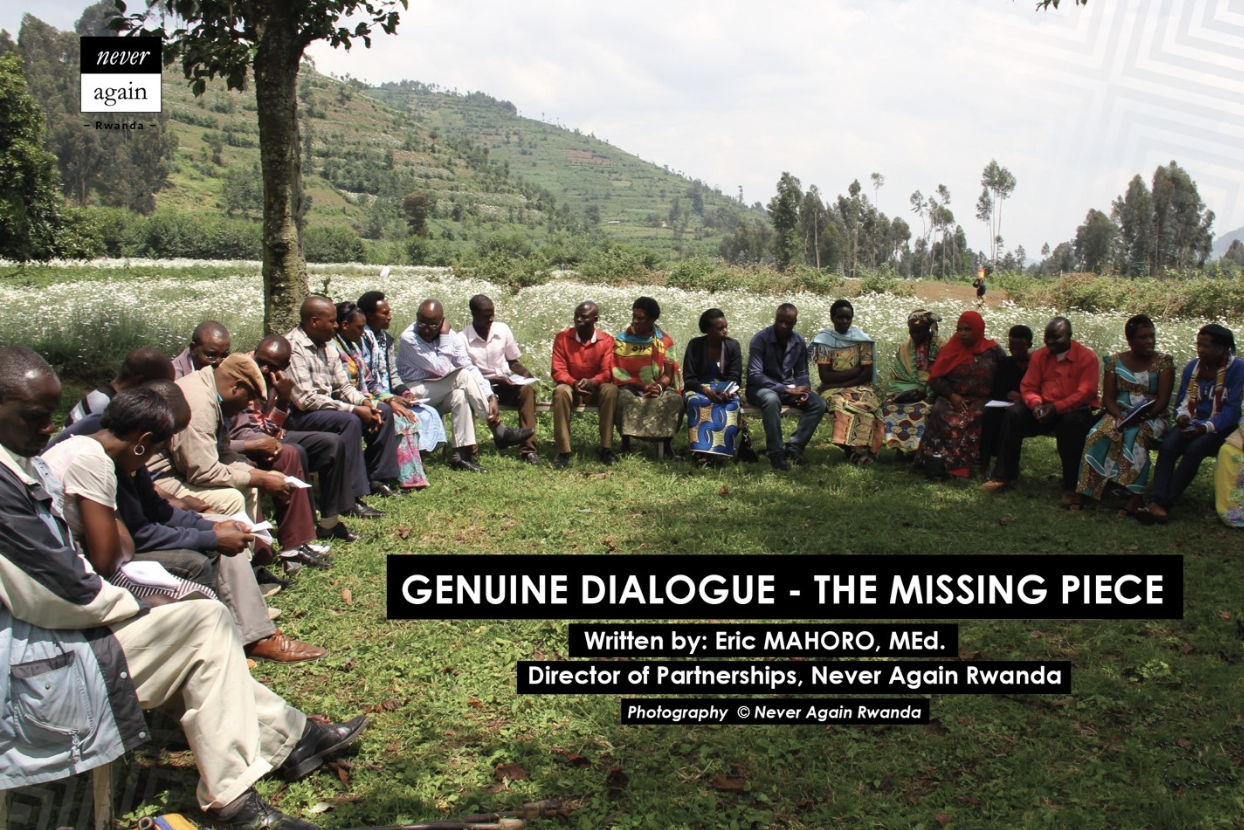Dialogue is a freely available God-given resource. It may be one of the most essential elements for well-being because it encourages interaction and humans are meant to be social beings. According to the Nature Journal1, humans need cooperation to survive. Humans have an innate capacity to reciprocate interactions either negatively or positively thus “direct reciprocity arises when repeated interactions occur between the same individuals.”- Hilbe et Al. (2018).
Experience shows that the most recurrent choice in a highly competitive environment is selfishness and self-centeredness. It is understandable because we all need to survive, and there is something which tells us that we can do so by obstructing and hindering others. This is human nature.
It looks like we have the knowledge of what is needed but it continues to become the missing piece in a complicated puzzle. Some have even made a deliberate choice to embrace dialogue as a model of life in theory but not necessarily in practice. In the Rwandan case, the 2003 constitution of the Republic of Rwanda as revised in 2015, in its article 10, one of the key fundamentals is the “constant quest for solutions through dialogue and consensus”.
Despite having the principles in place, dialogue has not been embraced as a culture in our societies. Selfish choices made in environments where genuine social interactions are hindered continue to be the basis of many societal challenges including intra-family conflicts, extreme violence, suicide tendencies, and the raising crime rate. This is more overt today where part of our life is online through social media and other unsafe web-based platforms.
Another danger is the fact that in places where there is a lack of genuine dialogue, rivalries are created which result in toxic environments and make it hard to enable healthy development for individuals and institutions. Sustainable growth is very hard to achieve in environments where there are no incentives for horizontal and vertical cooperation.
While challenges exist, different actors continue to advocate for the use of dialogue in solving societal challenges. Dialogue has played a major role in reconciliation and healing in Rwanda. From the Spaces for Peace established by Never Again Rwanda across the districts, to the alternative to dispute resolution policy2 recently approved by the government of Rwanda which seeks to provide avenues to deal with conflicts among individuals instead of overusing court-based remedies, you can see the quest for dialogue across our hills and valleys.
Those Spaces of Peace have been bringing together wounded people from diverse backgrounds to share their stories of a grieving past and supporting each other in a healing journey. They have helped thousands of Rwandans to open up to each other, rebuild trust and unite.
Nevertheless, there is a need to focus on establishing mechanisms for dialogue across the board, not just among the few individuals who have erupted into open conflicts but also in institutions like families, churches, and even those meant to promote genuine dialogue need to begin the process among themselves. It is an urgent need, particularly for the youth, so we can ensure the next generation has an adequate support system for their growth and wellness.
Dialogue- the missing piece, is one of the best tools we can use for better communication, connection, and conflict resolution.


